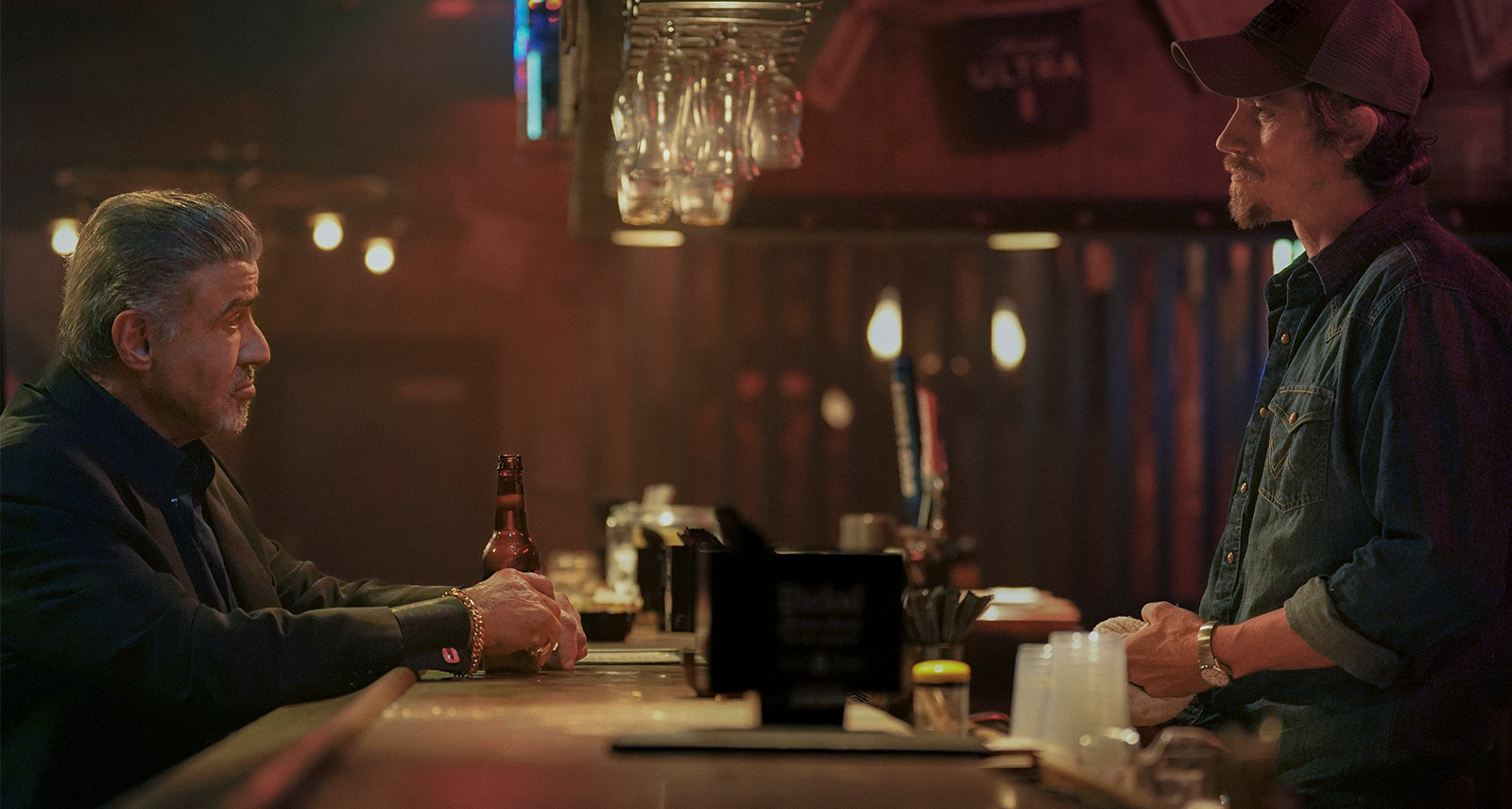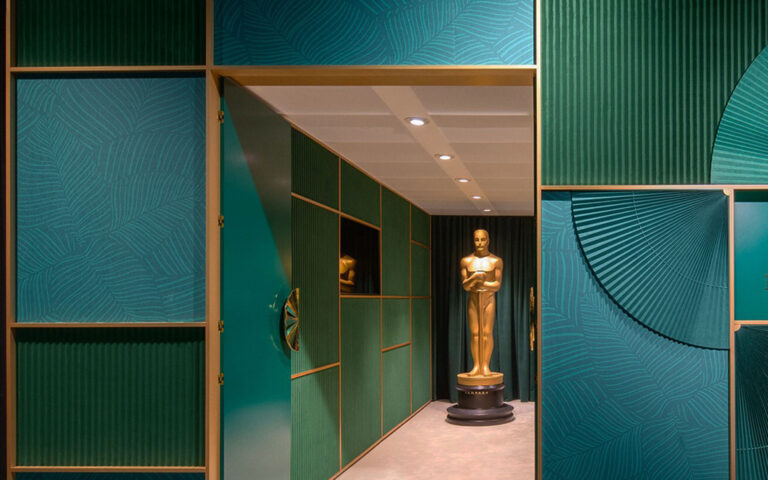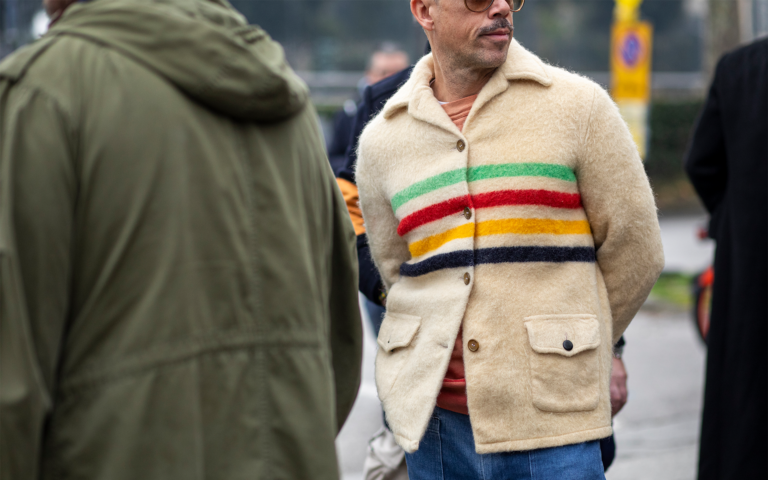Ever since his Academy-Award nominated return as trademark character Rocky Balboa in the box-office smash Creed, mega-star Sylvester Stallone has made it apparent to audiences and critics alike that he’s not going anywhere. Synonymous with an era of rip-roaring macho action flicks that have become sadly subsumed by 21st century computer-generated superhero nonsense, Stallone has still managed, amazingly, to maintain his status as larger-than-life, flesh and blood A-lister, juggling franchise resurrections, comedic voice-over work, and even charming Instagram presence (more on that later).
Now, in a Wild-West entertainment landscape where buzzwords like streaming, theatrical, and content all butt heads, Stallone is looking to stake a new claim. Starring for the first time ever in a television show — and given his meatiest new character in decades — he’s ready to showcase his dramatic chops once again. (Don’t forget: Roger Ebert once deemed the Rocky star our next Marlon Brando.)
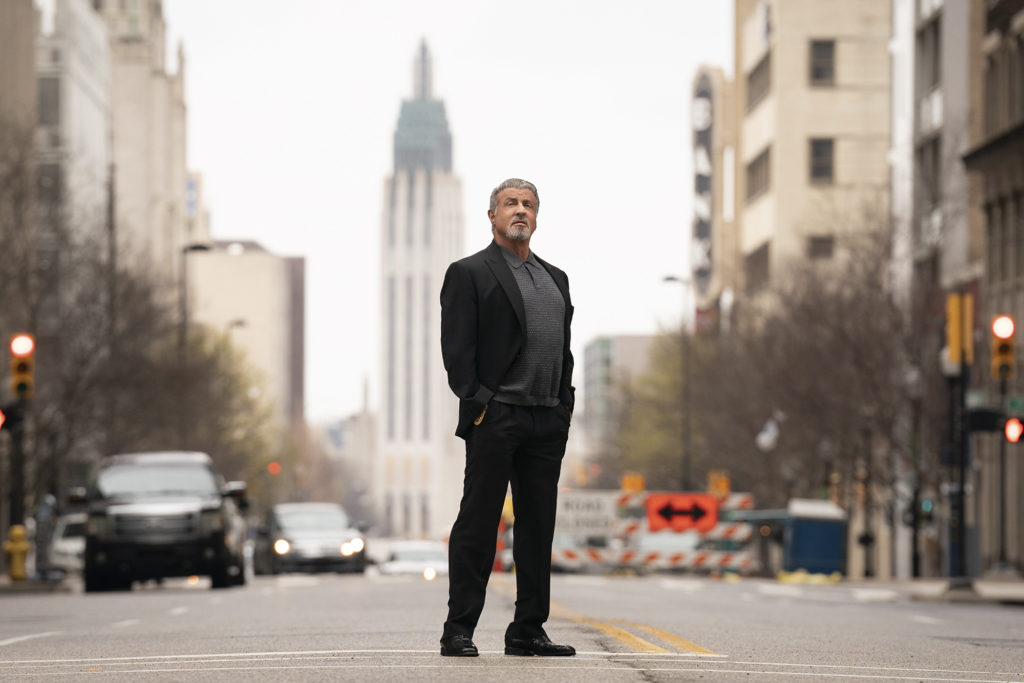
From Yellowstone creator Taylor Sheridan, Paramount Network original Tulsa King sees Sly playing the charismatic but brutish mob boss Dwight “The General” Manfredi. Fresh off a 25-year stint in prison, and eager to reclaim his stake in the criminal underworld, he soon finds himself a fish out of water reassigned from New York to Tulsa by his mafia overlords. It’s the kind of anti-hero role you can imagine him specializing in, had his career in the ’70s gone in a slightly different direction. The Italian Stallion himself is ready for his own Tony Soprano — but with a dash of the old Sly charm that’s made him one of our longest-lasting movie stars.
SHARP recently spoke to Stallone about Tulsa King, his acting process, and what he looks for in a project.
One of the first lines of dialogue that your character has mentions writing poetry. That instantly made me think of you, and the kind of artistic soul you have behind the tough exterior.
You’re pretty good. Yeah, I thought that in that monologue, we had to have something — because as it was originally written, they just talked about prison and where he went. I said, “No, let’s talk about how well-read he is, because he reads Machiavelli and this and that and he writes bad poetry, and he knows it’s bad,” that sort of thing. And I also thought it would give you a little hint that he has a wry sense of humour.
Throughout the film, as we went on, I started to get Terry [Winter, co-showrunner] with his confidence. I said, “Terry, I really know how to write for myself on certain things. I understand what you’re trying to accomplish, but I’ll put it in my words, and it’ll flow a little easier — and it’s a lot easier for me to memorize than if you wrote it.”
“It’s harkening back to when men were men — when action films were men overcoming incredible odds, not something that’s CGI-driven.”
Sylvester Stallone
Did you know guys in real life, from Philadelphia or even executives in the movie business, that had this kind of cutthroat attitude?
Oh yeah. I had a stepfather who had kind of a dubious childhood and he knew all these guys — Frank Palumbo, and there was Scrappy Joe and Angelo Bruno. So I kinda grew up around people like this. And then when I did Rocky, they all came out of the woodwork: “How you doin’, how you doin.’’ I met them all and I said, “I don’t wanna be like these guys.” Because there’s a certain look, like they’d be smiling, and it’d be this feral look, kind of a wolf with ears.
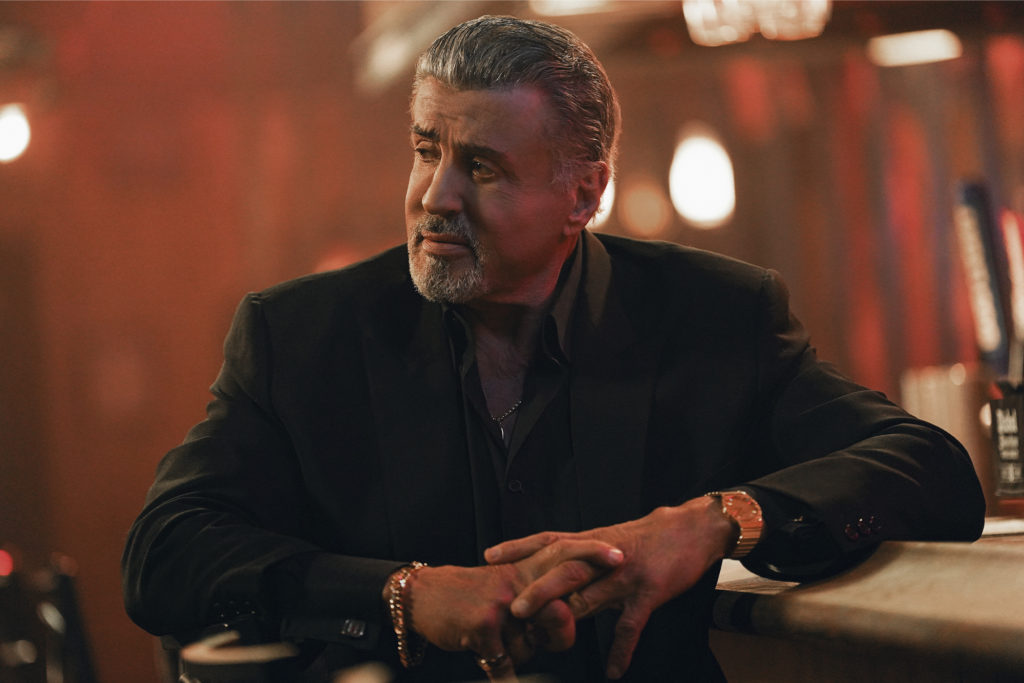
I always said if I ever got a chance to play a gangster, I was gonna take a little Franz Kafka-esque Metamorphosis out of a cockroach. Like I’m an actor, I woke up this morning, and I’m a gangster, but I still have this personality. In other words, try to bring yourself to the party. I said, yeah you have a guy who’s odd, a little out there, charming. But as you’ll see, he can get really tough when he has to.
Obviously, you’re, a writer, director, and actor, so you know moving pictures inside out. But was the process of making television different from film?
Yeah. I would have to say television is much harder, much faster, very unforgiving. They don’t welcome ad-libbing or changing the script at all because it’s precise. And I’m just the opposite. I’m very mercurial with it. And I believe that if you’ve done a take once or twice the same way, you’ve got to change it up. You already got that. So, you don’t have a lot of time for experimentation. How about none? And then also the amount of time. If we did ten shows it was the equivalent to five sequels in a row, like five Rocky’s, and that’s fatiguing.
Would you say this project in a way was similar to when you did Copland in 1997, where you were really hungry to have a new, dramatic role?
Yes, very much so. In Copland, I said, “Okay, I’m gonna be the weakest guy on the set and the weakest character.” That’s how that you have to be. So, you go here and have to check it at the door. This one I said, “You have to be a toughest guy on the block, but you also have to be the most unpredictable. You have to be funny, you have to be tough and then you find out he’s gonna be a little tragic later on, because he has some terrible regrets that he’s gonna try to remedy.”
Are there things you’ve done with this character that you feel like you’ve never done before?
Oh, definitely. I think the acting in this is definitely much more layered than I’ve ever done. Usually, Rocky is pretty, let’s say, one dimensional. He has a certain metre, a certain pacing. This character, every time he’s with the bad guys, he’s tough. He’s with his daughter, he different. He’s constantly altering his ego, his personality, for what the situation calls for.
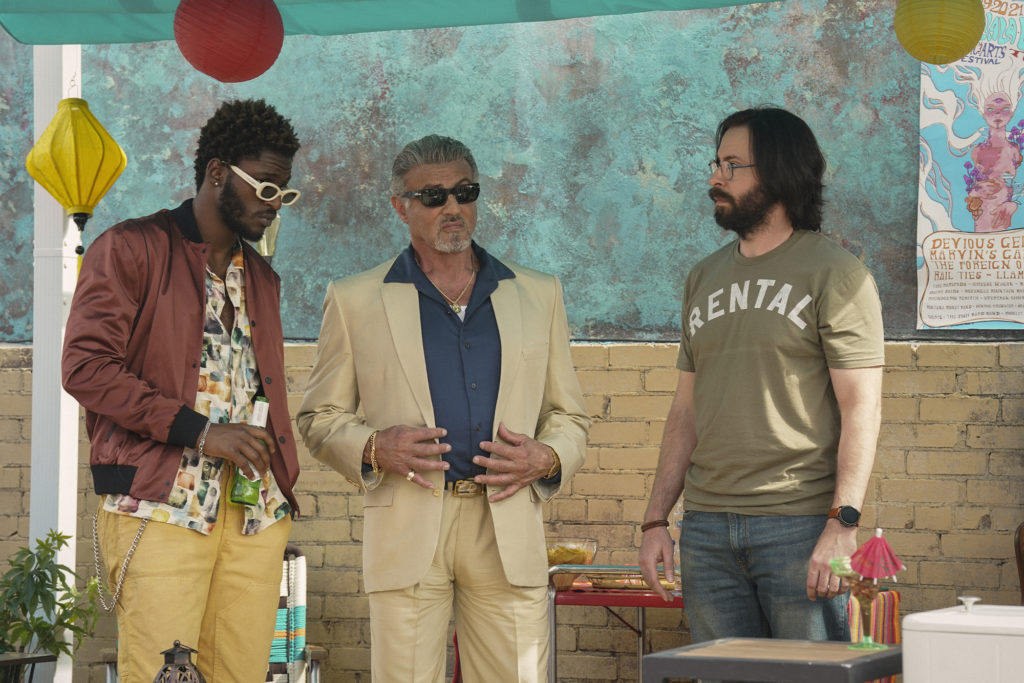
I know you’ve had an Edgar Allen Poe biopic that you’ve wanted to make for years, but are there any projects like that you’re still really hoping to make one day?
Yeah, there’s a couple there. There’s one I wanna do, it’s called Hunter, which I’d like to do as a streaming series. There’s another called Levon Cade. A lot of these are harkening back to when men were men [laughs] — when action films were basically men overcoming incredible odds, but terra firma and real, not something that’s CGI-driven. Almost like Rambo, Rocky, early Charles Bronson, Dirty Harry. That’s the kind of film I’m focusing on.
Even though, obviously, it seems like action films have shifted to that — superheroes and CGI — are there any younger action stars who’ve impressed you?
I think there are, but I’d like to take them out of that scenario and the CGI aspect of it. Because I know they all wanna do it. I can’t tell you how many actors and comedians, even Adam Sandler, have said “I’d love to do Rambo.” It’s like every guy’s fantasy to do that stuff. But it’s something that’s very hard to find, that kind of actor. You can find muscles and a good look and this and that, but that’s not what it takes to be Charles Bronson. They’re there, but it’s not for everybody. So when you find someone like Jon Bernthal, you go ‘yeah, he’s got the makings of it.’
And do you think that’s essentially lived experience?
I think so. That’s a good point. It is lived experience. If you’ve grown up as a child actor and you move along, what exactly have you experienced? You’ve lived basically a surreal world your whole life. I’ve been in some bad places in my life, and I use it all the time for sensory recall. Like, I’ve been arrested, I’ve been in some really difficult situations. And it’s always gonna be there. And I literally, like a filing cabinet: pull up this nightmare, pull up that one. And that sensory recall comes in handy.
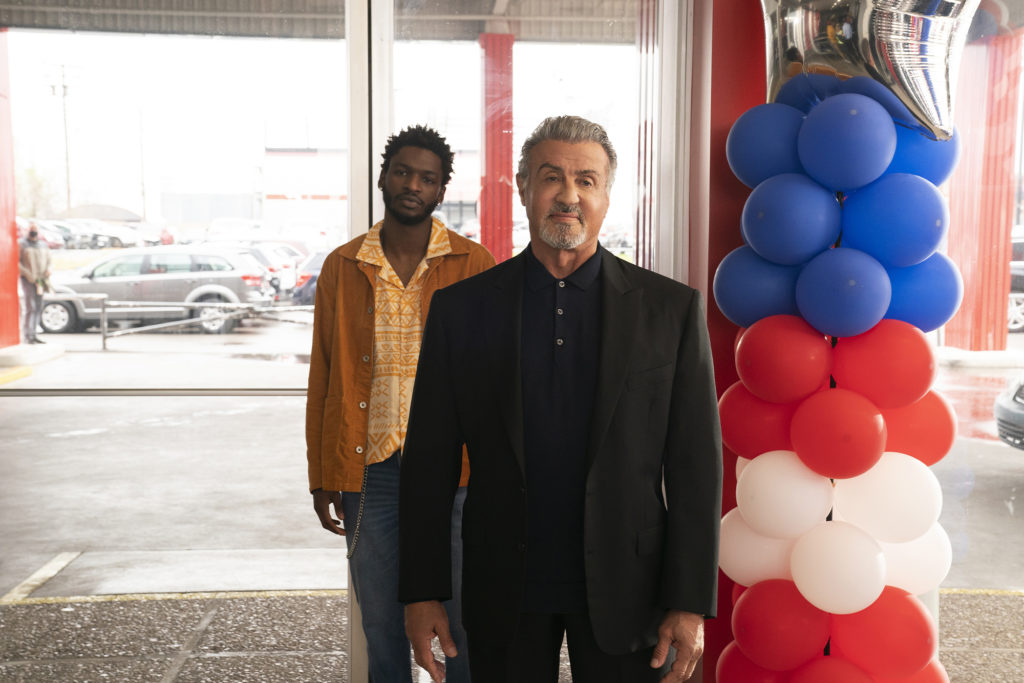
Do you consider yourself a method actor in that way?
Yeah, I would. I use that… what is it called? Like if I’m acting with you, I’ll put my father in your body. So I replace you with his. So it’s like I’m talking to him, which changes the whole dynamic as opposed to talking to an actor I don’t really know. Substitution, that’s the word.
And one last thing: there was this post on your Instagram that me and my friends all loved where you post a photo of yourself with all the keys to Vatican City. Can you talk about that a little?
That! So, I go there, and I’ve been there a couple of times, but for some reason, everything was available to me. They said, “This is the keeper of the keys, who’s been here for 40 years. This is every key in the Vatican, and no one touches it but him.” And when I tell you, he knows where every one of them is, and they let me hold it and grab it right back. It was almost like grabbing Jesus’s chalice, he’s that special. And so then I go in and I unlock the Sistine Chapel. And you walk in, and there’s sunlight there, and you got the key.
